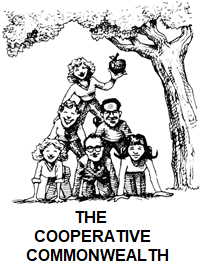Every aspect of society is undergoing upheaval. Everything that seemed “normal” yesterday is coming apart today. It is fashionable to claim that humans are innately aggressive, and that warfare is inevitable and unavoidable. To provide ideological aid to the capitalist subjugation of the worker, a large group of economists, psychologists, sociologists and journalists have been propounding a theory that the human character contains unique elements which make it especially susceptible to totalitarian movements. People are supposed to be prone to militarism; they are said to be inherently submissive and their greatest joy is found, we are told, in blind devotion to a leader and adherence to barbarous acts of brutality. It is a deliberate distortion of the evolutionary historical picture of human society. Don’t make the mistake of thinking that anything contrary to the rules and ethics of capitalism is utopian or visionary. What’s absurd is to think this madhouse society is permanent and for all time. When we see the possibility of a new world that’s within our grasp, we will find the means to take the decisive action to make that new world our own.
We live in a highly competitive society founded upon the institution of private property. Marriage laws and family relationships reflect this basic concept of private ownership and a tremendous social pressure is transmitted through the parents. At an early age a child feels that he has to achieve something, to acquire status and to own a lot of things. Parents naturally urge children to go after the things they themselves wanted and frequently did not get. Unfortunately a great many people have no realistic prospect of getting all this stuff. In face of the continuous pressure to acquire some of these products of American culture, they may look for shortcuts – crime. It’s because they feel that they have no choice and there’s no way out that they wind uip in the blind alley of narcotic addiction or waging war with the law.
Marxism aims to discover and set forth the laws of evolution in social life from the earliest form of social organization to the contemporary world contest between capitalism and socialism.
The Socialist Party’s vision of a future Co-operative Commonwealth, is rather too vague an idea in the minds of many of our fellow-workers who, living under present society and needing to functioning within it to survive, require to deal constantly with the concrete and the immediate. They have neither time nor inclination for speculation, and the usual cry of the Socialist Party, "Vote the Co-operative Commonwealth" lacks for them any practicality. So far as they can see, those who seek that world commonwealth, are, sadly, in a small minority at the polls. The future society comes only at the desire and with the consent of the proletariat.
Marxism comprises of a recognition of the class struggle, the materialistic conception of history, and the labour theory of value and surplus value. We stand uncompromisingly against capitalism and all of its institutions that prop up, apologise for, or buttress in any manner the present system, whether frankly capitalistic enterprises or cloaked as municipal or government ownership. We shall unite all our energies to destroy the present capitalist system and establish the cooperative commonwealth. We are thus headed towards happiness. Loving care must take the place of the spoliation and destruction of mankind’s environment. This is the inescapable task and responsibility of the World Socialist Movement. We know how to produce but capitalism can not produce without criminal waste. It is frightening the socially irresponsible ownership bent exclusively on profits. In the face of dogmas, of despots, and of charlatans, the socialist future belongs to reason. Our cause today is a vision of humanity crossing into a new world, a world free of exploitation, ignorance and strife. Our vision is a vision of a country free forever from want, from race and national hatred and from sexual oppression and human exploitation. That vision is a vision of a country where the ever-expanding material and cultural needs of the people are satisfied by an ever-new technology that has freed humanity from toil. The vision is one of peace and social harmony. Today, the level of the means of production makes realising this cause possible.







